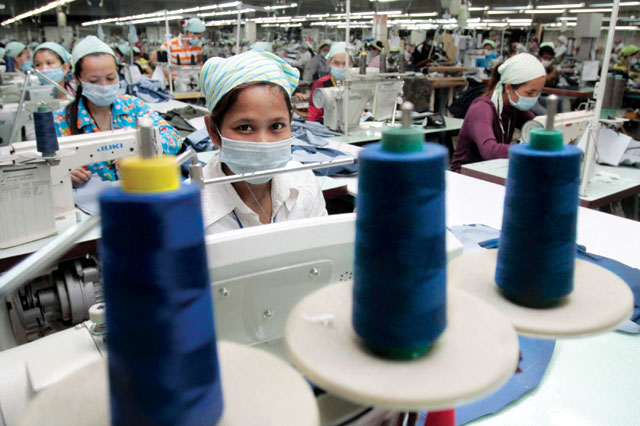Cambodia’s garment workers recently scored a pay rise. Reactions to this decision are mixed
After more than a year of industrial disputes, the Cambodian government has announced an increase in the minimum wage of garment workers from $100 to $128 per month. The Labour Advisory Committee, which represents employers, employees and the government, initially decided on a rise to $123. However, after a meeting with Prime Minister Hun Sen, it was agreed that full-time workers would receive $128 while those on probation will get $123. The increase will take effect next year.

Not everyone welcomed the news. The Garment Manufacturers Association in Cambodia, which represents many garment factories, called for a wage increase to only $110 and stated that the more significant raise would force factories to close.
“I don’t think any sensible business person would begrudge people earning a decent living wage,” said Stephen Higgins, managing partner of Mekong Strategic Partners. “The issue is how quickly you get there. A 60% increase in the minimum wage in just two years, in a country with very low inflation, is quite remarkable.
“The level of increase is well above any change in productivity, so that’s not ideal. And it will make it hard to attract new garment manufacturers to Cambodia, particularly given how Cambodia compares to other garment manufacturing countries.”
The garment industry is vitally important to the Cambodian economy; it employs almost 200,000 workers and its exports are said to be worth $5 billion, or a third of the national GDP.
On the other side, trade unions expressed their dismay that the minimum wage was not set higher – especially as they have been campaigning for an increase to $140 for the past year.
Since late 2013, garment workers have regularly protested and gone on strike to demand this pay rise, with many of these demonstrations ending in violence and bloodshed. In January, five workers were shot dead by security forces during a strike outside a garment factory in Phnom Penh.
According to Markus Karbaum, an independent consultant specialising in Cambodian politics, “most garment workers will be satisfied with the 28% increase in their salaries since many of them will actually earn more than $128 due to overtime work that is quite common”.
Karbaum added that while the minimum wage increase “will force some factories to close, nobody should regret this because the affected companies only exist by paying starvation wages, often combined with other sweatshop characteristics. Their disappearance will be a blessing for Cambodia.”
It remains to be seen how the increase will affect the industry. After the announcement, trade unions said they would meet with their members to discuss the new minimum wage and decide whether workers wanted to launch renewed protests and strikes.
It could also have implications for other industries in Cambodia. “It will almost certainly lead to wage increases elsewhere in the economy, as employees in other sectors will look for a similar increase,” said Higgins.
Keep reading:
“Class action” – Changes are afoot in Cambodia’s much-maligned state education sector. Can a dynamic, reform-minded minister bring the system up to speed?

